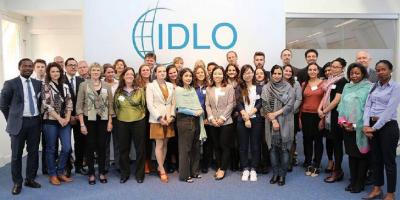
More than twenty international law and global health experts have adopted a consensus statement on responses to non-communicable diseases (NCDs) at the end of an expert meeting in The Hague.
The IDLO-hosted event was examining human rights-based approaches and domestic legal responses to NCDs. Participants reviewed how international human rights law could contribute to the global response to NCDs, and discussed whether new sources of legal obligation were needed. The focus was on obesity, diabetes and unhealthy diets, but the conclusions contain lessons for all NCDs.
“Who was protecting the rights of the three-year-old girl diagnosed with Type 2 diabetes as a result of an unhealthy diet?” asked Dr David Cavan of the International Diabetes Federation.
“In order to scale up action on global health, we need a global language. Human rights is that language,” said David Patterson, IDLO’s senior legal expert for health issues. “This means civil society participation in decisions about global health challenges, and promoting accountability and the rule of law.”
His position was echoed by Professor Brigit Toebes of the University of Groningen: “Human rights law,” she said, “contains a set of key values that can guide and inspire domestic NCD laws and policies.”
According to the World Health Organization (WHO), NCDs are the biggest cause of preventable illness, disability and mortality worldwide. They account for 38 million deaths annually, almost three-quarters of which occur in low- and middle-income countries. These premature deaths are largely avoidable by tackling shared risk factors, such as tobacco use, unhealthy diets, physical inactivity and the harmful use of alcohol.
Comprehensive legislative and regulatory frameworks and legal practices are an essential part of the national response, the meeting heard. The possibility was raised of adopting a specialized international legal instrument, within the framework of the WHO, which could strengthen the current legal framework for tackling NCDs.
The event was co-sponsored by Global Health Law Groningen and the Economic, Social and Cultural Rights Working Group of the Netherlands School of Human Rights Research.
Photo: Alexander Schimmeck


